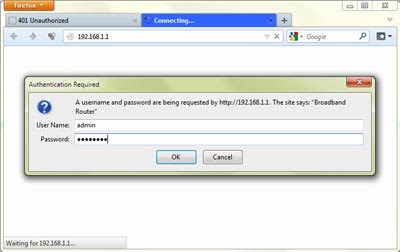hashcat is the world's fastest and most advanced password recovery utility, supporting five unique modes of attack for over 200 highly-optimized hashing algorithms. hashcat currently supports CPUs, GPUs, and other hardware accelerators on Linux, Windows, and OSX, and has facilities to help enable distributed password cracking.
Installation
Download the latest release and unpack it in the desired location. Please remember to use
7z x when unpacking the archive from the command line to ensure full file paths remain intact. GPU Driver requirements:
- AMD GPUs on Windows require "AMD Radeon Software Crimson Edition" (15.12 or later)
- AMD GPUs on Linux require "AMDGPU-PRO Driver" (16.40 or later)
- Intel CPUs require "OpenCL Runtime for Intel Core and Intel Xeon Processors" (16.1.1 or later)
- Intel GPUs on Windows require "OpenCL Driver for Intel Iris and Intel HD Graphics"
- Intel GPUs on Linux require "OpenCL 2.0 GPU Driver Package for Linux" (2.0 or later)
- NVIDIA GPUs require "NVIDIA Driver" (367.x or later)
Features
- World's fastest password cracker
- World's first and only in-kernel rule engine
- Free
- Open-Source (MIT License)
- Multi-OS (Linux, Windows and OSX)
- Multi-Platform (CPU, GPU, DSP, FPGA, etc., everything that comes with an OpenCL runtime)
- Multi-Hash (Cracking multiple hashes at the same time)
- Multi-Devices (Utilizing multiple devices in same system)
- Multi-Device-Types (Utilizing mixed device types in same system)
- Supports distributed cracking networks (using overlay)
- Supports interactive pause / resume
- Supports sessions
- Supports restore
- Supports reading password candidates from file and stdin
- Supports hex-salt and hex-charset
- Supports automatic performance tuning
- Supports automatic keyspace ordering markov-chains
- Built-in benchmarking system
- Integrated thermal watchdog
- 200+ Hash-types implemented with performance in mind
- ... and much more
Algorithms
- MD4
- MD5
- Half MD5 (left, mid, right)
- SHA1
- SHA-224
- SHA-256
- SHA-384
- SHA-512
- SHA-3 (Keccak)
- BLAKE2b-512
- SipHash
- Skip32
- RIPEMD-160
- Whirlpool
- DES (PT = $salt, key = $pass)
- 3DES (PT = $salt, key = $pass)
- ChaCha20
- GOST R 34.11-94
- GOST R 34.11-2012 (Streebog) 256-bit
- GOST R 34.11-2012 (Streebog) 512-bit
- md5($pass.$salt)
- md5($salt.$pass)
- md5(unicode($pass).$salt)
- md5($salt.unicode($pass))
- md5($salt.$pass.$salt)
- md5($salt.md5($pass))
- md5($salt.md5($salt.$pass))
- md5($salt.md5($pass.$salt))
- md5(md5($pass))
- md5(md5($pass).md5($salt))
- md5(strtoupper(md5($pass)))
- md5(sha1($pass))
- sha1($pass.$salt)
- sha1($salt.$pass)
- sha1(unicode($pass).$salt)
- sha1($salt.unicode($pass))
- sha1(sha1($pass))
- sha1($salt.sha1($pass))
- sha1(md5($pass))
- sha1($salt.$pass.$salt)
- sha1(CX)
- sha256($pass.$salt)
- sha256($salt.$pass)
- sha256(unicode($pass).$salt)
- sha256($salt.unicode($pass))
- sha512($pass.$salt)
- sha512($salt.$pass)
- sha512(unicode($pass).$salt)
- sha512($salt.unicode($pass))
- HMAC-MD5 (key = $pass)
- HMAC-MD5 (key = $salt)
- HMAC-SHA1 (key = $pass)
- HMAC-SHA1 (key = $salt)
- HMAC-SHA256 (key = $pass)
- HMAC-SHA256 (key = $salt)
- HMAC-SHA512 (key = $pass)
- HMAC-SHA512 (key = $salt)
- PBKDF2-HMAC-MD5
- PBKDF2-HMAC-SHA1
- PBKDF2-HMAC-SHA256
- PBKDF2-HMAC-SHA512
- MyBB
- phpBB3
- SMF (Simple Machines Forum)
- vBulletin
- IPB (Invision Power Board)
- WBB (Woltlab Burning Board)
- osCommerce
- xt:Commerce
- PrestaShop
- MediaWiki B type
- WordPress
- Drupal 7
- Joomla
- PHPS
- Django (SHA-1)
- Django (PBKDF2-SHA256)
- Episerver
- ColdFusion 10+
- Apache MD5-APR
- MySQL
- PostgreSQL
- MSSQL
- Oracle H: Type (Oracle 7+)
- Oracle S: Type (Oracle 11+)
- Oracle T: Type (Oracle 12+)
- Sybase
- hMailServer
- DNSSEC (NSEC3)
- IKE-PSK
- IPMI2 RAKP
- iSCSI CHAP
- CRAM-MD5
- MySQL CRAM (SHA1)
- PostgreSQL CRAM (MD5)
- SIP digest authentication (MD5)
- WPA
- WPA2
- NetNTLMv1
- NetNTLMv1+ESS
- NetNTLMv2
- Kerberos 5 AS-REQ Pre-Auth etype 23
- Kerberos 5 TGS-REP etype 23
- Netscape LDAP SHA/SSHA
- FileZilla Server
- LM
- NTLM
- Domain Cached Credentials (DCC), MS Cache
- Domain Cached Credentials 2 (DCC2), MS Cache 2
- DPAPI masterkey file v1 and v2
- MS-AzureSync PBKDF2-HMAC-SHA256
- descrypt
- bsdicrypt
- md5crypt
- sha256crypt
- sha512crypt
- bcrypt
- scrypt
- OSX v10.4
- OSX v10.5
- OSX v10.6
- OSX v10.7
- OSX v10.8
- OSX v10.9
- OSX v10.10
- iTunes backup < 10.0
- iTunes backup >= 10.0
- AIX {smd5}
- AIX {ssha1}
- AIX {ssha256}
- AIX {ssha512}
- Cisco-ASA MD5
- Cisco-PIX MD5
- Cisco-IOS $1$ (MD5)
- Cisco-IOS type 4 (SHA256)
- Cisco $8$ (PBKDF2-SHA256)
- Cisco $9$ (scrypt)
- Juniper IVE
- Juniper NetScreen/SSG (ScreenOS)
- Juniper/NetBSD sha1crypt
- Fortigate (FortiOS)
- Samsung Android Password/PIN
- Windows Phone 8+ PIN/password
- GRUB 2
- CRC32
- RACF
- Radmin2
- Redmine
- PunBB
- OpenCart
- Atlassian (PBKDF2-HMAC-SHA1)
- Citrix NetScaler
- SAP CODVN B (BCODE)
- SAP CODVN F/G (PASSCODE)
- SAP CODVN H (PWDSALTEDHASH) iSSHA-1
- PeopleSoft
- PeopleSoft PS_TOKEN
- Skype
- WinZip
- 7-Zip
- RAR3-hp
- RAR5
- AxCrypt
- AxCrypt in-memory SHA1
- PDF 1.1 - 1.3 (Acrobat 2 - 4)
- PDF 1.4 - 1.6 (Acrobat 5 - 8)
- PDF 1.7 Level 3 (Acrobat 9)
- PDF 1.7 Level 8 (Acrobat 10 - 11)
- MS Office <= 2003 MD5
- MS Office <= 2003 SHA1
- MS Office 2007
- MS Office 2010
- MS Office 2013
- Lotus Notes/Domino 5
- Lotus Notes/Domino 6
- Lotus Notes/Domino 8
- Bitcoin/Litecoin wallet.dat
- Blockchain, My Wallet
- Blockchain, My Wallet, V2
- 1Password, agilekeychain
- 1Password, cloudkeychain
- LastPass
- Password Safe v2
- Password Safe v3
- KeePass 1 (AES/Twofish) and KeePass 2 (AES)
- JKS Java Key Store Private Keys (SHA1)
- Ethereum Wallet, PBKDF2-HMAC-SHA256
- Ethereum Wallet, SCRYPT
- eCryptfs
- Android FDE <= 4.3
- Android FDE (Samsung DEK)
- TrueCrypt
- VeraCrypt
- LUKS
- Plaintext
Attack-Modes
- Straight *
- Combination
- Brute-force
- Hybrid dict + mask
- Hybrid mask + dict
Supported OpenCL runtimes
- AMD
- Apple
- Intel
- Mesa (Gallium)
- NVidia
- pocl
Supported OpenCL device types
- GPU
- CPU
- APU
- DSP
- FPGA
- Coprocessor



























